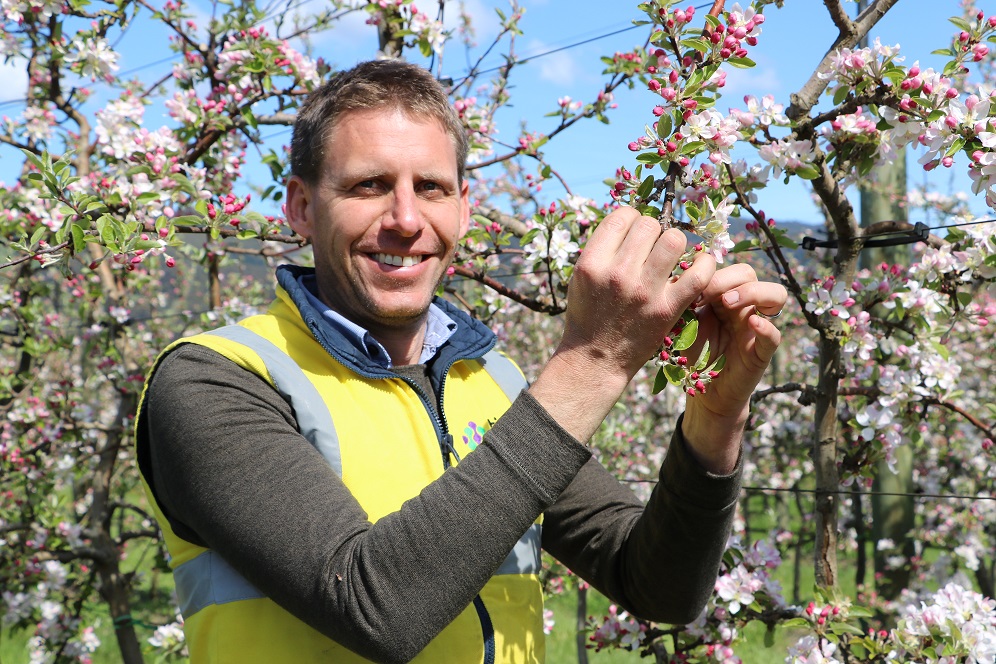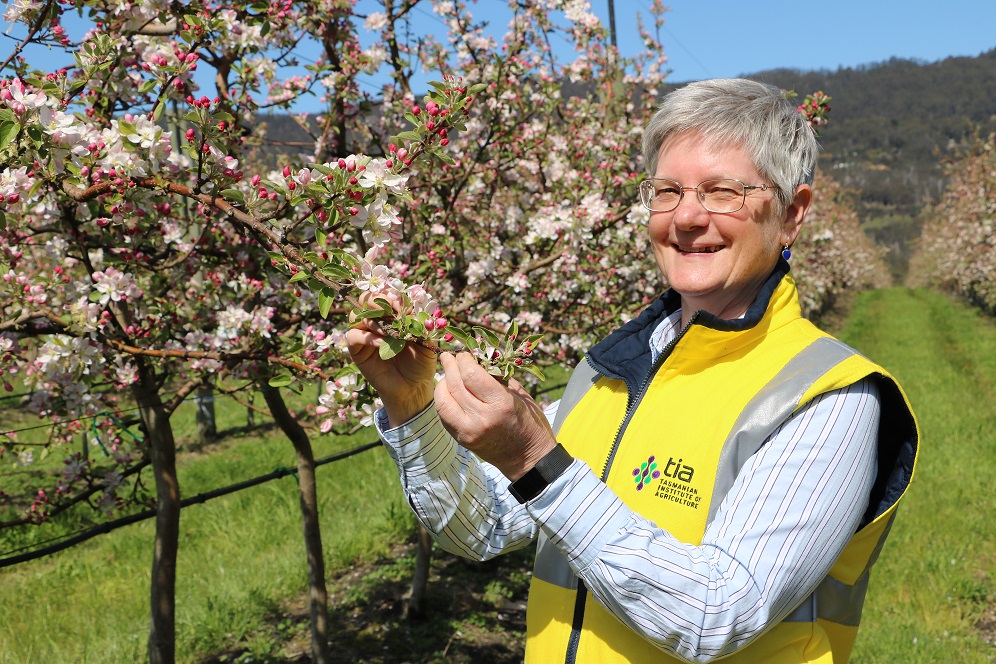The Tasmanian Institute of Agriculture (TIA) has secured an impressive $3.7 million in national funding for research that will boost production and profits for Australian apple growers.
TIA will lead two new projects as part of Hort Innovation’s Productivity, Irrigation, Pests and Soils (PIPS 4 Profit) program - a flagship research program for the Australian Apple Industry.
The projects will provide a national approach to developing profitable apple growing systems and focus on technologies for efficient and reliable soil and nutrient management.
Both projects will run for five year and will be led by highly regarded TIA Senior Research Fellows, Dr Sally Bound and Dr Nigel Swarts.
Optimising apple production systems ($2.1 million) will develop and evaluate strategies and technologies for efficient and reliable apple crop load management.
“We will be working closely with growers to test the profitability of new techniques for orchard renovation, crop thinning and canopy manipulation. The end target is producing quality fruit for consumers,” Dr Swarts said.
“This will lead to well-informed recommendations to improve labour and resource use efficiency in their business.”
Dr Swarts said tree training, pruning and crop load management are the most important yet difficult management strategies that determine the annual profitability of apple orchards.
“When it comes to crop load management it really is a balancing act,” Dr Swarts said.
“The number of fruit that remain on a tree directly affects yield, fruit size and the quality of fruit that are harvested. If too many fruit are left on the tree, fruit size will be small and quality will be poor.
“Over thinning also carries risks. If crop load is reduced too much then fruit size will be excessively large with poor fruit quality and a much-reduced postharvest life.

“This research will evaluate a range of crop load management treatments including pruning, chemical, mechanical and hand thinning to give growers confidence in their management decisions.”
Growers will be directly involved through hosting trial sites for research and participating in an economic impact analysis.
Building sustainable soils ($1.6 million) aims to give growers a clearer understanding of the economic impacts of their orchard management decisions, particularly when it comes to soils.

“We know that sustainability of production and supply chains is really important to both growers and consumers, so that is a key focus for this project,” Dr Sally Bound said.
“We want to demonstrate an apple growing system that is not only good for the environment, but also improves efficiency and reduces costs for growers.”
Research trials will be established in existing commercial orchards to determine what stacks up economically and environmentally.
“We will be working closely with growers to provide relevant and practical knowledge on improving efficiency through soil, water and nutrient management,” Dr Bound said.
“We want to put hard numbers around the way growers can manage biodiversity and sustainability within their orchard, while enhancing their soil health and land productivity.”
Project funding and collaboration
The projects are funded by Hort Innovation using the apple and pear industry levy funds from growers and matching funds from the Australian Government.
Building sustainable soils is made up of collaborating staff from TIA, DPI NSW, Pomewest, SA Fruit Producers and Fruit Help Victoria.
Optimising apple production systems is a collaboration between TIA, Agriculture Victoria (Ag Vic), DPIRD WA and DPI NSW.


